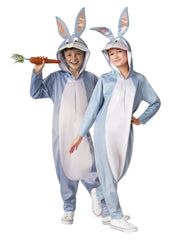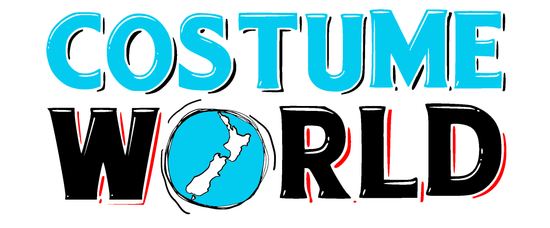Hop To It! Easter is Coming!

Can you hear the patter of rabbit feet? That’s right, it’s almost Easter! The supermarket shelves are full of Easter Eggs and Hot Cross Buns, although let’s face it, they’ve been out since Boxing Day… With Easter now less than a month away we’re looking at the Easter traditions and some fun ways you and your family can celebrate.

What is Easter?
Easter is a Christian celebration, however, it is also observed by non-churchgoers as well. Good Friday and Easter Monday are public holidays in New Zealand. It is seen as a celebration of new life. For Christians, it is the celebration of the death and resurrection of Jesus Christ. The week leading up to Easter is proclaimed Holy Week. The Thursday before Easter is known as Maundy Thursday and commemorates the Last Supper, when Jesus met with his Disciples for the last time, before being betrayed. Good Friday marks the date that Jesus was put to death on the cross. Easter Sunday is celebrated as the day that Jesus rose from the grave.
When is Easter 2024?
This year Easter Sunday falls on March 31st. Friday the 29th is Good Friday in 2024.
Why Does the Date of Easter Move?
Easter is always celebrated on a Sunday. Its date falls on the first Sunday on or after the first full moon following the Spring equinox in the Northern Hemisphere. That means it can be anywhere from the 22nd of March to the 25th of April.
When is Orthodox Easter 2024?
The Greek and Russian Orthodox churches celebrate Easter on Sunday the 5th of May in 2024. It is based on a different calculation and cannot be celebrated during Passover, so the date is often different to the date that other churches and the secular community celebrate Easter.
What is Lent?
Easter also marks the end of Lent, which is a period of reflection when many Christians choose to fast or restrict particular foods from their diet. Traditionally it was 40 days (excluding Sundays) when they would not eat bread with yeast, and also cut out sweet and fatty foods, including eggs. This led to Shrove Tuesday, which many people know as Pancake Day, when they would use up their eggs and butter before starting the fast.
Why are eggs used to represent Easter?
The traditions surrounding giving Easter Eggs differ around the world and have been documented as far back as the 13th century. The church at the time had decreed that eggs could not be eaten during Holy Week, but the chickens continued to produce eggs. Rather than let them go to waste they were decorated and gifted as part of the Easter celebrations.
Some say that the egg symbolises the tomb that Jesus rose from or the stone that rolled away from the entrance to his tomb. In the orthodox tradition, the eggs are painted red to symbolise the blood of Christ.
Not specific to Christian Easter traditions, painted and carved eggs have long been a symbol of fertility and new life. In the Persian calendar, the Spring Equinox marks the new year and painted eggs are a common decoration for celebrating the new year. Decorated eggs have also been found in ancient Egyptian and Sumerian burial sites.

Where did the Easter Bunny come from?
The exact origins of the Easter Bunny are unknown. Due to their prolific reproduction rates, they are often seen as a symbol of fertility and new life. The Pagan goddess Eostre, whom Easter is believed to be named after, had the rabbit as her animal symbol. German folktales tell of a rabbit that would lay colourful eggs as gifts for children, although this can be problematic when children find the “chocolate eggs” that real rabbits lay…
In other countries, the animals bringing the Easter treats can vary, such as the Cuckoo which brings Easter gifts to children in Switzerland and the Easter Fox and Easter Rooster which brings gifts to children in different parts of Germany. The Easter Bilby has become a yearly tradition in Australia to raise awareness about the damage caused by rabbits and the threat to the small native marsupial.
Check out our Easter Bunny costumes here.

What is the meaning of hot cross buns?
Hot cross buns are a traditional Easter food in the UK, Australia and New Zealand, among other places. They are a spiced bun containing dried fruit and featuring a cross on the top. Early traditions had these buns cooked and consumed on Good Friday, although a decree in 1592 forbidding the sale of hot cross buns on Good Friday was issued. This led to them being cooked in homes instead.
In Christian tradition, the cross on top represents the cross Jesus died upon, the spices represent the spices used to embalm him and the orange peel inside the buns provide a bitterness to reflect his time on the cross.
There are various superstitions regarding hot cross buns, such as that hot cross buns baked on Good Friday won’t spoil or go mouldy for a whole year. Others say that they have healing properties and that a piece of hot cross bun should be given to the sick to help them recover. Hot cross buns are meant to be taken on sea voyages to protect against shipwrecks and hung in kitchens to prevent fires and make all bread turn out perfectly. That’s a lot of pressure on a little baked good…
So, when can I eat my Easter eggs?
Easter Sunday is the day to start eating your Easter eggs. Just make sure you don’t eat too many at once!

Family Easter Activities to Keep the Kids Entertained
Check out these fun activities from around the world that you and your family can try to celebrate Easter.
Dying eggs
Use artificial colours or try using traditional methods to dye and decorate eggs. Traditional methods can include onion peel, beetroot juice, and walnut shells. Drawing on the eggs with beeswax before dying them can be used to make patterns or write names onto the eggs.

Image Source: https://www.styleathome.com/how-to/diy-projects/article/easter-craft-wax-and-dye-easter-eggs
Egg Tapping
Hard boil your eggs then crack your egg onto the egg of a friend or family member. The person whose egg doesn’t crack is said to have good luck coming their way.

Image Source: https://racingnelliebly.com/strange_times/victorian-era-easter-eggs/
Easter Egg Hunt
Common in many households already, this is fun for kids to go exploring. An epic hunt where eggs are hidden inside and outside with clues or a map is a great way for older kids to join in.

Image credit: Jason Jarrach
Egg Rolling Races
In England boiled or chocolate eggs are rolled down hillsides to see whose egg will roll the farthest. In the US children have egg rolling races where eggs are pushed along by children with wooden spoons. Choose a tradition that suits the terrain where you live and get rolling!

Image source: https://www.washingtonpost.com/dc-md-va/2022/04/18/white-house-egg-roll-covid/
Egg Tossing
Another game with multiple options – this game can be played on grass where eggs are thrown to see whose egg goes the furthest without breaking, or by having two-person teams who throw uncooked eggs over increasing distances to see which teams get the furthest apart before the egg breaks (be ready for hilarity and mess with this one!)

Image source: https://easter.fandom.com/wiki/Egg_Tossing?file=Egg-tossing.jpeg
Easter Bonnets
a fun Easter tradition is making a bonnet or hat to celebrate easter. Make one from fabric or paper and decorate it with pictures of bunnies, baby chicks and colourful Easter eggs. Some schools still have Easter bonnet parades where your child can show off their creation.

Image source: https://www.madeformums.com/toddler-and-preschool/5-easy-last-minute-easter-bonnets/
Make your own Hot Cross Buns
Find a recipe that works for your family (dried fruit or no dried fruit, peel or no peel, chocolate, apple, raspberry, caramel) and get to baking. They are easy to make and kids are often blown away seeing the yeast grow the batter.

Image source: https://www.taste.com.au/recipes/hot-cross-buns-3/7589988d-d90e-47bc-ac30-4aa3a2bc492b
Shop our range of Easter Bunny costumes at Costume World New Zealand
Happy Easter!

- Biz Wisdom
